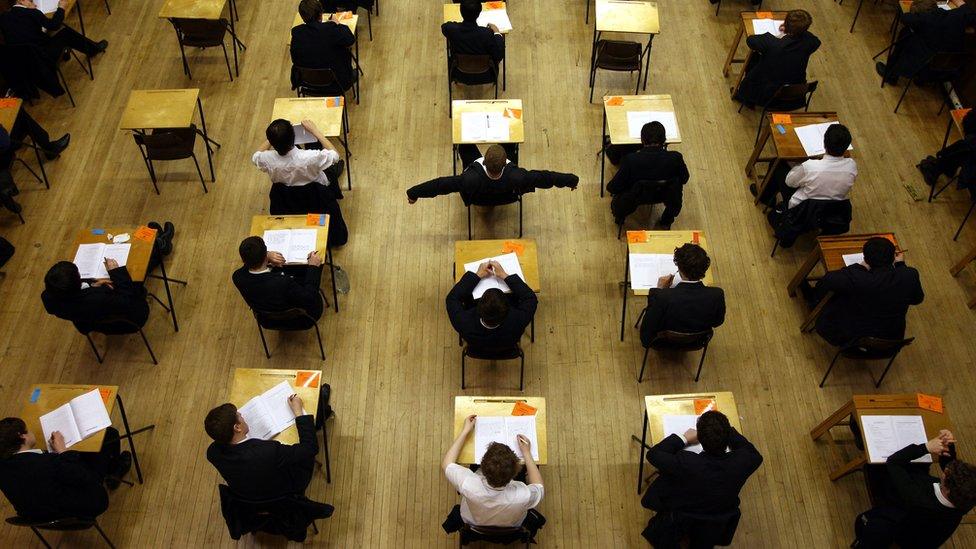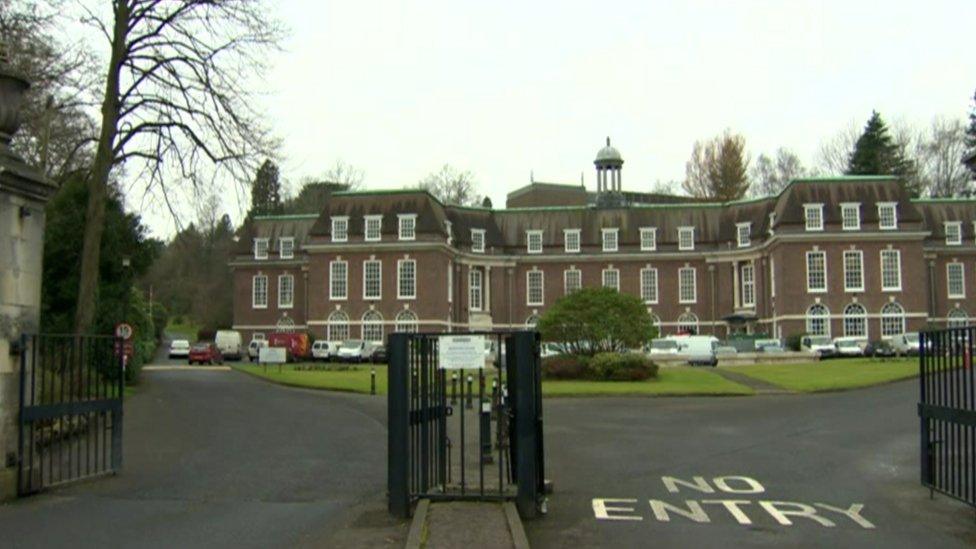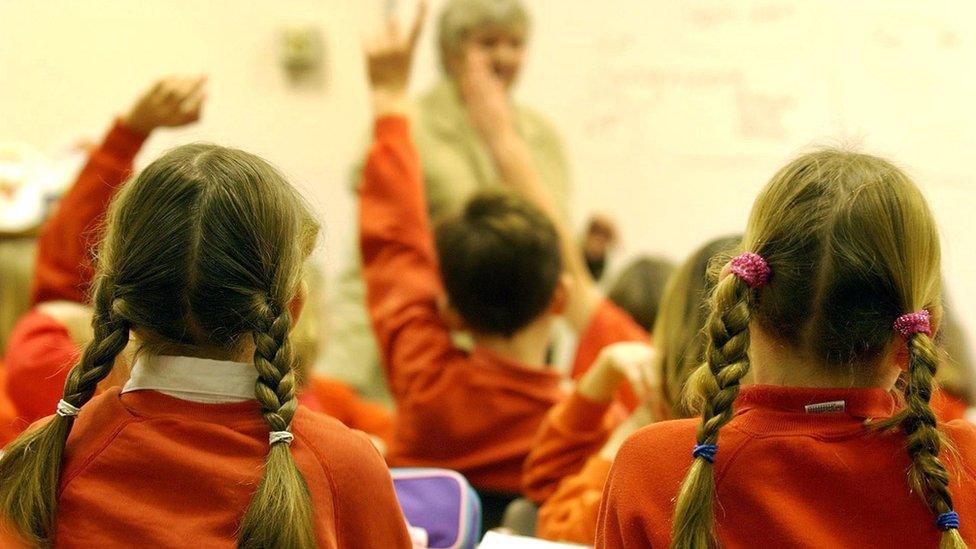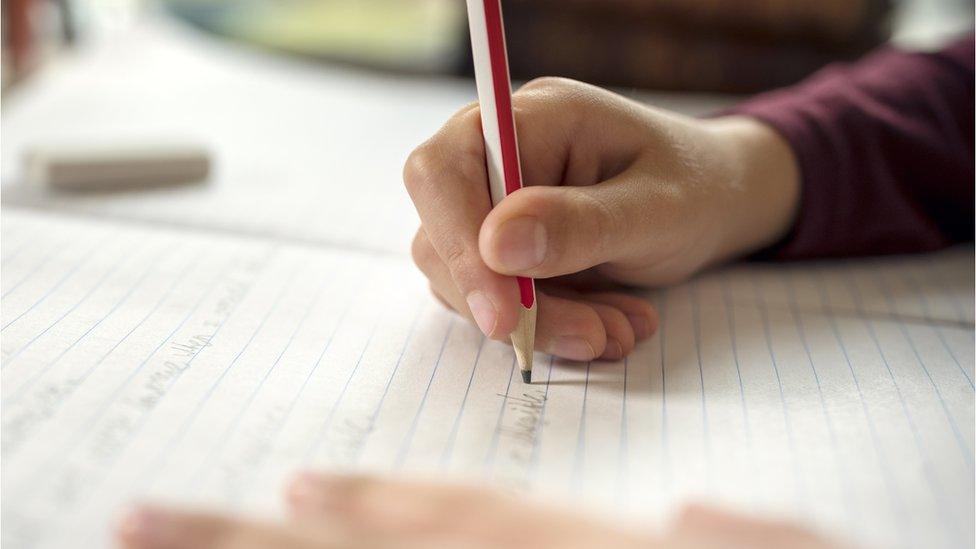Northern Ireland school children affected by academic selection
- Published
- comments

Research shows academic selection has significant consequences for pupils
Academic selection has significant social, educational and economic consequences for pupils.
That is according to the Centre for Research in Educational Underachievement (CREU) at Stranmillis University College.
In a new report, academics from the centre said that there was "no single remedy" to tackle underachievement.
They said new research was needed into how academic selection contributed to educational underachievement.
Addressing persistent underachievement by some pupils was a commitment of the New Deal New Approach agreement.
It said the NI executive would "establish an expert group to examine and propose an action plan to address links between persistent educational underachievement and socio-economic background, including the long-standing issues facing working-class, Protestant boys".
The CREU at Stranmillis has studied the research on the area in Northern Ireland carried out over the past 20 years.
Their report focuses especially on "the significant relationship between underachievement and social disadvantage".
They conclude that "a long tail of underachievement belies Northern Ireland's reputation for producing academically high-achieving pupils".

The CREU at Stranmillis University College studied the research between educational underachievement and socio-economic background
Yet they also said that research on educational underachievement has not been comprehensive.
This is especially the case when it comes to academic selection, according to the report's authors.
They said that the most recent comprehensive research on the effects of academic selection was carried out 20 years ago.
Student achievement
However, they said that international evidence clearly showed that sorting pupils into separate educational "tracks" magnified inequality.
"For our present purposes the area of greatest concern is the finding that the most important factor which influenced student achievement at GCSE was whether individuals had been placed in a grammar school or not," the report said.
"This is a particular concern given that access to and performance in the transfer tests, and eventual placement in a grammar school were found to be mediated by socio-economic status."
The report also said that - despite the fact that the Northern Ireland curriculum is meant to equip young people with skills for life and work in the 21st century - there had been little change in teaching or learning.

Student achievement at GCSE influenced by whether individuals had been placed in a grammar school or not
"The dominance of core academic subjects, assessed through external examinations, are thought to act as a constraint on 21st century learning," the report said.
"Therefore, any consideration of educational underachievement would be remiss were it not to consider the fallibility of high-stakes external tests throughout the curriculum."
The report also points out that Northern Ireland has a significantly higher proportion of 17-24 year olds without qualifications than other UK countries.
It also studies research in a number of other areas including early years provision and excluding pupils from school.
Gap in achievement
The report concludes that social mobility is "not helped" by Northern Ireland's current education system.
That is because the gap in achievement between pupils from advantaged and disadvantaged backgrounds widens as they progress through school.
"What is clear is that experiences of educational underachievement are multi-faceted and have significant consequences for young people," the authors said.
"However, the extent of existing research does not fully address many of the issues discussed here."
"There remain significant gaps in the current body of knowledge."
- Published23 May 2019

- Published24 January 2019
